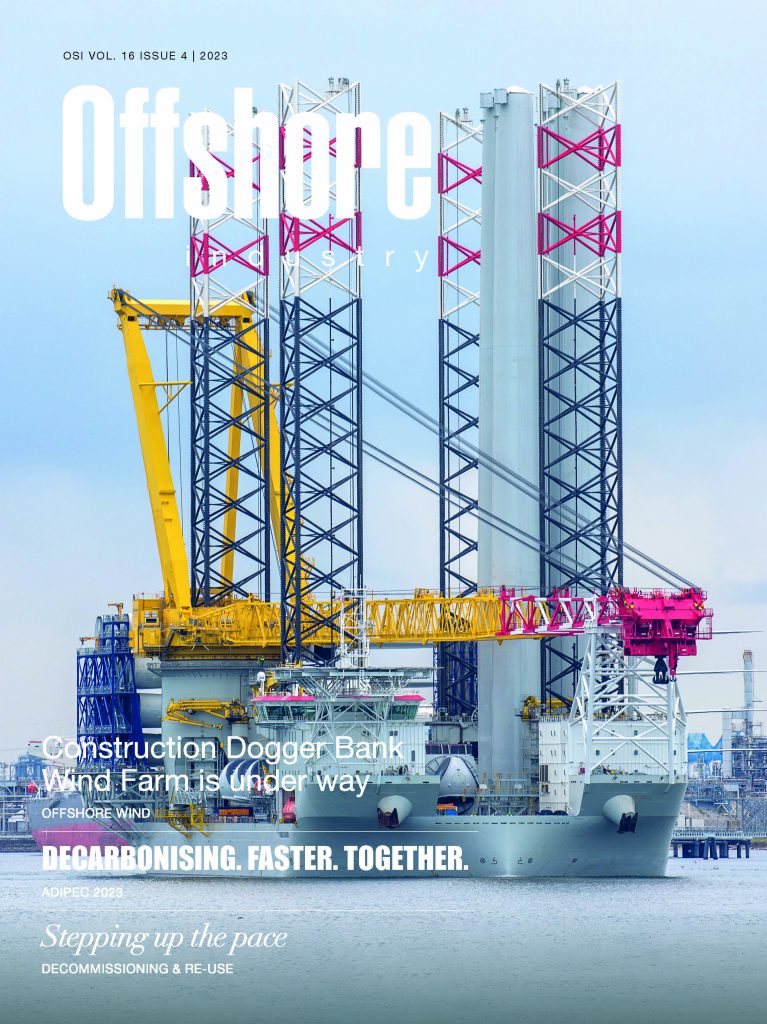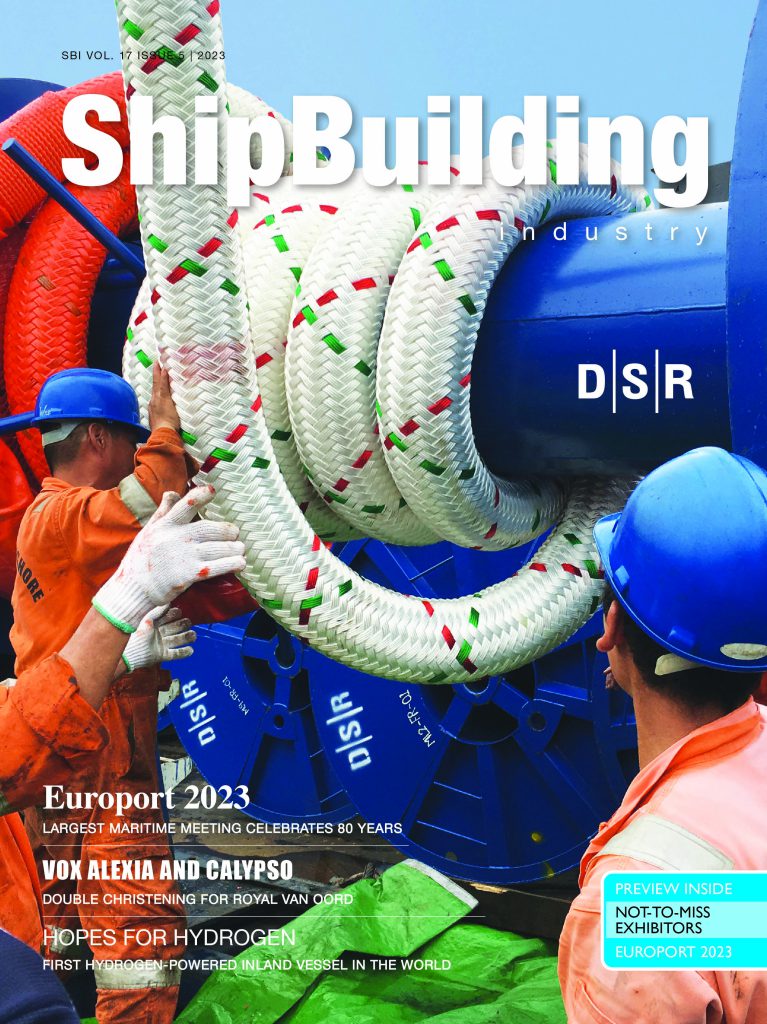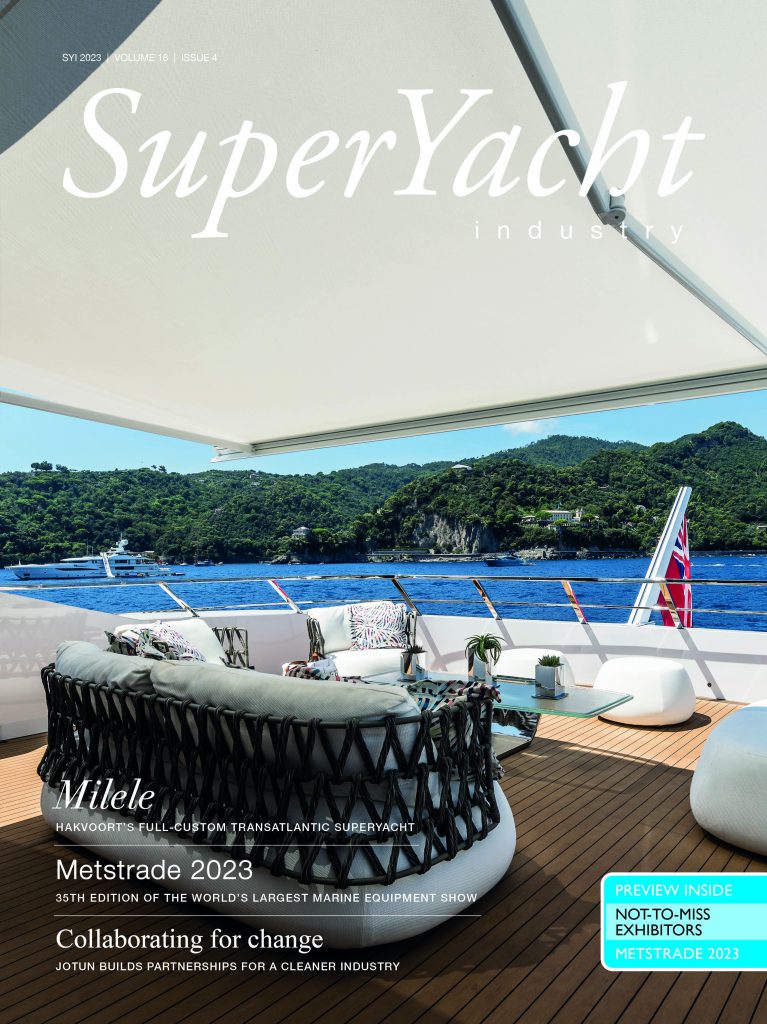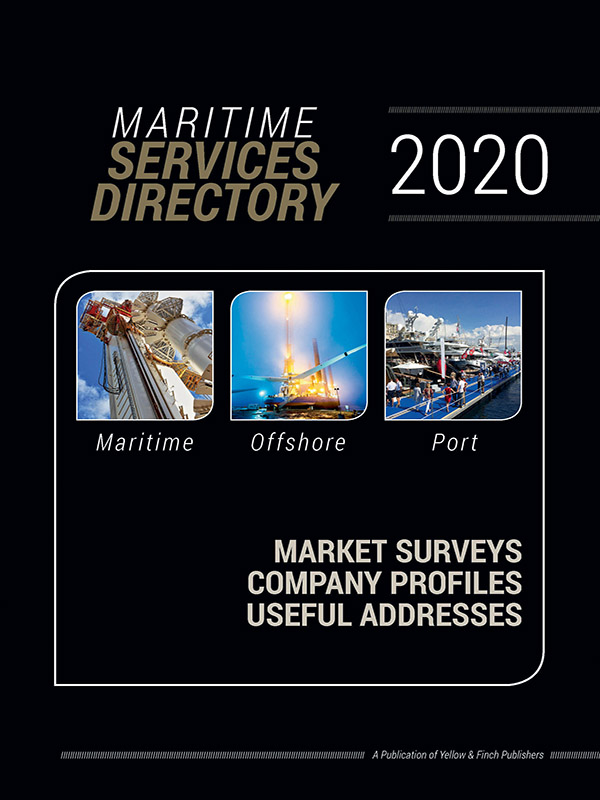Baleària Sets Marie Curie Out to Sail
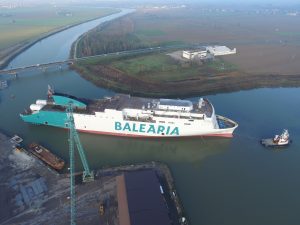 The shipping company Baleària has set its ferry Marie Curie out to sail from the Italian shipyard Cantiere Navale Visentini; whereas construction on its twin Hypatia de Alejandría is just about finished with the corresponding sea trials planned. They are the first LNG-propelled ferries to sail the Mediterranean.
The shipping company Baleària has set its ferry Marie Curie out to sail from the Italian shipyard Cantiere Navale Visentini; whereas construction on its twin Hypatia de Alejandría is just about finished with the corresponding sea trials planned. They are the first LNG-propelled ferries to sail the Mediterranean.
Hypatia de Alejandría is to begin operating at the beginning of the year and Marie Curie a few months afterwards.
As concerns the newly-afloat Marie Curie, practically the entire structure is finished and work is being done to prepare the passenger and crew areas meaning more than 50% of the construction is now complete. Moreover, the LNG engines and tanks as well as the primary equipment are already onboard.
On the other hand, Hypatía de Alejandría is nearly finished. The ferry is currently at the dry dyke where anti-scaling silicone is being applied to the hull. The ship is expected to go through sea trials in the coming weeks with both liquified natural gas and fuel.
The investment in building these two smart ships, which will be pioneer on the Mediterranean, totals EUR 200 million. They are sustainable ships with identical characteristics: 186.5m long with a maximum speed of 24 knots and the capacity for 810 people, 2100 linear metres of cargo and 150 vehicles. Technology and digitisation have been used for these two new ships for energy efficiency purposes as they will be equipped with LED lighting and other features besides the dual fuel LNG engines (with 20,600kW of power). Moreover, the latest innovations in onboard services will be implemented for more experiential journeys.
Pioneers in natural gas
For Baleària, the use of LNG as a fuel is a strategic commitment in order to comply with social responsibility and economic profitability criteria in addition to a way to position it as an international pioneer in the use of liquified natural gas. Besides these two ships, the construction at the Armon shipyard of the first fast ferry with LNG engines to sail anywhere in the world was recently announced. Furthermore, the first of the six ships in the fleet to switch to natural gas-propelled engines was refitted this month. This project is being partially funded by the European Union with EUR 12 million out of the total EUR 72 million investment after classifying it as excellent.



